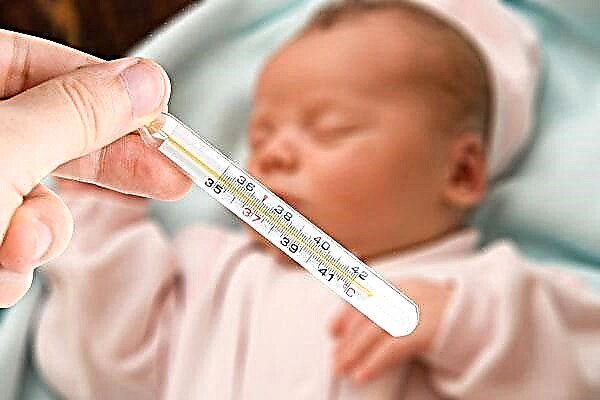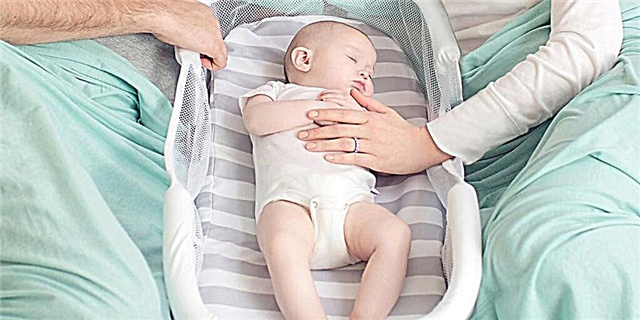Many believe that only adults can experience heartburn, but now more and more heartburn occurs in childhood. Heartburn is a burning sensation, warmth, or pain that starts in the upper abdomen at the level of the lower edge of the sternum. This feeling can move in waves up to the throat, and the child sometimes has a sour taste in the mouth.
Causes
Heartburn in children is usually a sign of acid reflux, during which acid from the stomach returns to the esophagus. At the bottom of the esophagus there is a muscle - the lower esophageal sphincter - that holds the acid in the stomach. But if the sphincter relaxes too much, stomach acids can rise and irritate the thin lining of the esophagus. This causes heartburn and other symptoms.
 Acid reflux is an uncomfortable but very common condition in babies. About half of all children under 4 months old are found. In infants, immaturity of the digestive tract is a contributing factor to heartburn.
Acid reflux is an uncomfortable but very common condition in babies. About half of all children under 4 months old are found. In infants, immaturity of the digestive tract is a contributing factor to heartburn.
In older children 5 years of age and older, acid reflux, which causes heartburn, may occur due to the following reasons:
- incomplete closure of the esophageal sphincter;
- certain foods and drinks - chocolate, mint, fatty, fried foods, coffee, sugars, carbonated drinks. After the onset of heartburn, gastric reflux sometimes causes the esophagus to be sensitive to other foods - tomatoes, citrus fruits, spicy foods, onions, garlic. The use of these products subsequently leads to increased heartburn .;
- improper diet - overeating, eating just before bedtime;
- pressure on the stomach caused by obesity, frequent bending and lifting, tight clothing, excessive physical exertion;
- in adolescents - smoking and using other tobacco products;
- medicines - Aspirin, Prednisolone, Ibuprofen, potassium, iron supplements, antihistamines and sleeping pills;
- diaphragmatic hernia. A condition in which some abdominal organs exit through the diaphragm (the muscle that separates the lungs from the abdominal organs) into the chest;
- stress, in which the amount of acid increases and the emptying of the stomach slows down.
Symptoms associated with heartburn
- abdominal pain;
- chest pain;
- cough;
- hoarse voice;
- poor appetite;
- painful swallowing;
- red throat;
- vomiting;
- stridor breathing;
- sleep disturbance.
Diagnostics
At times, it is difficult to make a clear diagnosis of heartburn in young children because they cannot clearly identify their symptoms. At most, a small child will say that he has a stomach ache in the upper part.
If your child develops any symptoms of heartburn or acid reflux, start by visiting your pediatrician. You can see a specialist in gastroenterology. Evaluation for acid reflux heartburn will depend on the age of the child.
- X-ray of the intestine with barium. After the child drinks the chalky liquid containing contrast material (barium), an x-ray of the esophagus, stomach and part of the intestine will be taken;
- endoscopy. For an anesthetized child, a small, flexible tube with a camera (endoscope) is inserted through the mouth into the esophagus and stomach. This will allow the doctor to view these areas and take a tissue sample (biopsy) if needed.
- esophageal pH probe. The doctor inserts a thin, flexible tube through the baby's nose and into the esophagus to check the acid levels in the esophagus;
- study of the work of peristalsis. After the child drinks milk containing a specific radioactive material, the doctor uses a camera to monitor the movement of the substance through the digestive tract.
Treatment
Treatment tactics depend on the age of the child and the causes of heartburn. Heartburn in babies usually goes away by one year, but sometimes it does not respond well to treatment.
 One study that looked at several common methods of relieving heartburn found that most of them did not work, including sleeping more upright or using a pacifier.
One study that looked at several common methods of relieving heartburn found that most of them did not work, including sleeping more upright or using a pacifier.
However, keeping the baby upright for about 30 minutes after feeding will alleviate this problem.
Medication is an effective treatment for heartburn, which does not go away on its own.
Overview of types of medicines:
- Antacids.
- H2 blockers.
- Proton pump inhibitors.
These types of drugs either neutralize stomach acid or reduce the amount of stomach acid produced, so less stomach acid is released into the esophagus.
Antacids for children are prescribed by a doctor. H2 blockers and proton pump inhibitors are given to children only as a last resort.
In rare cases, a child may need a fundoplication operation, which involves wrapping the upper stomach around the lower esophageal sphincter to create a band that prevents stomach acid from being released.
Other methods can be used to help relieve your child's frequent heartburn. There are currently a number of home remedies for heartburn.
What to give a child from heartburn at home?
- The simplest home remedy for heartburn in children is to drink plenty of water, as water will have a neutralizing effect.
- Chew on a piece of cloves and the acidity will disappear.
- Ginger also helps relieve indigestion.
- Instead of following the traditional 3 meals a day, have your child eat small meals at regular intervals.
- A little lemon peel has long been used as a natural remedy for heartburn.
- 5-10 grams of sugar after meals is one of the best natural remedies for heartburn in children.
- Dress your child in loose clothing.
- Eating cold foods like ice cream is also a good remedy for heartburn.
- A quick home remedy for heartburn is a glass of chilled milk.
- Children can be given almonds.
- Having plenty of leafy vegetables is a good solution to heartburn.
- You can also give your child green tea.
- Chewing gum. It triggers the production of saliva, which neutralizes acid. In addition, chewing gum makes the baby swallow more often, which "pushes" acids from the esophagus back into the stomach. When choosing chewing gum, just make sure it is sugar-free to protect your baby's teeth. Chew the gum slowly 30 minutes after eating.
Heartburn prevention
A few simple strategies can help prevent heartburn in your child.

- Note what the child eats. Avoid certain foods that cause heartburn, but also watch your child for mint, caffeine, soda, chocolate, juices and citrus fruits, tomatoes, onions, and fatty foods. Give more fiber to keep your digestive tract working properly. Also, reduce your portion sizes. Try feeding your baby five or six times a day in small meals.
- Observe when the child eats. Serve dinner 2 to 3 hours before bed so that the baby's stomach has a chance to free itself before the baby goes to bed.
- Notice how the child eats. Ask to eat slowly, taking less food in one bite.
- Help your child lose weight. Excess abdominal fat is pressed against the stomach, causing acid to be released into the esophagus. Teach your child to follow a diet and exercise program to lose those extra pounds.
- Keep a diary. Write down what the child ate and when the symptoms of heartburn began so that you can determine which foods are causing heartburn. Avoid such foods.
If you take preventive measures and help regulate food intake, your child's heartburn will be greatly reduced.



